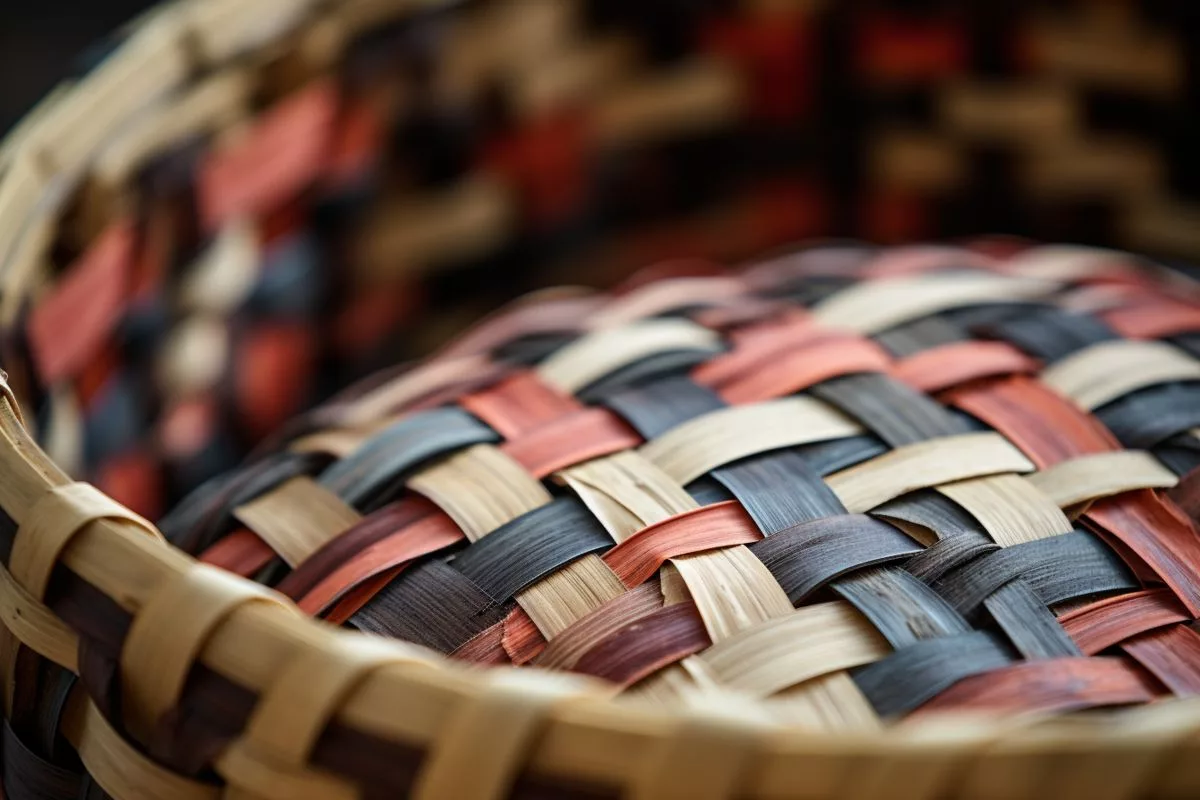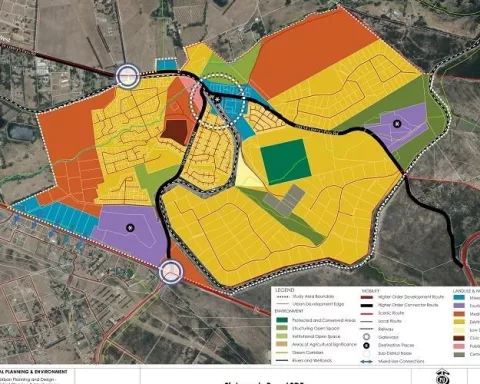Mo’s Crib is a South African home decor company founded by sisters Mo and Michelle Mokone. Their unique handmade products are made from sustainable materials and include woven baskets, planters, and wall art. They have successfully penetrated the American market by leveraging the African Growth and Opportunity Act and are setting global benchmarks in ethical home decor. Their story of resilience, innovation, and sustainable progression is reflected in each of their beautiful handcrafted decor items.
What is Mo’s Crib and what makes their home decor products unique?
Mo’s Crib is a South African home decor company founded by sisters Mo and Michelle Mokone, offering handmade products made from sustainable materials like polyvinyl chloride plastic salvaged from waste dumps and construction sites. Their collection includes woven baskets, planters and wall art. Mo’s Crib is setting global benchmarks in ethical home decor and has successfully penetrated the American market by leveraging the African Growth and Opportunity Act. Their products are not only aesthetically pleasing but also narrate a story of resilience, innovation and sustainable progression.
Setting a Global Benchmark in Ethical Home Decor
Mo and Michelle Mokone are two sisters who have made a name for themselves in the US home decor market. Their venture, Mo’s Crib, is an illustration of their determination, aspirations, and innovative spirit. They have not only escalated the standards in South Africa’s inventive decor industry but are also aiming to broaden their entrepreneurial reach worldwide.
The nucleus of their venture embodies a fascinating collection of handmade home decor products. The diverse offering of Mo’s Crib includes everything from woven baskets to planters, wall art, and outdoor essentials. Each item is a beautiful blend of aesthetics and sustainability. The products are crafted from unique materials that resonate with environmental consciousness, like ultra-strong polyvinyl chloride plastic, salvaged from waste dumps and construction sites across South Africa. These materials are repurposed into stunning decor items, frequently combined with different varieties of grass.
Pioneering Ethical Decor in the American Market
In 2021, the enterprising Mokone sisters spotted a chance to penetrate the profitable American market using the African Growth and Opportunity Act (AGOA). This US Trade Act, implemented in May 2000, offers a valuable export opportunity for 35 Sub-Saharan countries to the USA – a substantial consumer market. By leveraging this Act, Mo’s Crib was able to export an array of products duty-free to the USA. This strategic move turned out to be a significant milestone for their business, resulting in the shipment of eight full containers of products to the USA since 2021.
“We secured an export certificate in 2019 and it served us well when we were prepared to export,” said Michelle, the Operations and Supply Chain Director of Mo’s Crib. “It was comforting to know that we are based in an AGOA-beneficiary country and that our products would be exempt from import duties.” Shipping was a costly venture, particularly for a self-financed small-scale business like theirs, but the profits were substantial enough to offset the expenses. Presently, orders from the USA make up 60% of their total revenue.
From Humble Beginnings to Thriving Business
Michelle recalls the humble beginnings of Mo’s Crib back in the 90s, when Mo started making rugs from recycled plastic bags. The business took a more formal direction in 2016 when they participated in an annual Christmas market. Their first major commercial success was an origami art product that Mo had learned to make in London. The item was so popular that they sold out within days. After two years of annually adding new products to their portfolio and balancing their growing business with their full-time corporate jobs, the sisters decided to dedicate their efforts fully to their entrepreneurial passion in 2019.
Prior to Mo’s Crib, the Mokone sisters held professional roles in their respective industries. Mo was an executive assistant and human resources personnel in a corporate firm, while Michelle worked as an agricultural economist for a farmer’s association. Michelle was also working towards her Masters in International Trade Law at the University of Bern in Switzerland at that time.
“Our distinct skills and attributes have been crucial in building the business to its present state and propelling growth in the homeware sector,” explained Mo. Currently, Mo’s Crib, fully self-funded since its beginning, is a prosperous business that employs 12 full-time staff and 86 artisans. The ambitious sisters have plans to create an additional 20 jobs in the coming two to three years.
In their ongoing journey, the Mokone sisters continue to leave a lasting impact not only in the world of home décor but also in the entrepreneurial landscape. Their story serves as a testament to the transformative power of passion and tenacity, encouraging others to redefine the limits of what’s achievable. Each handcrafted decor item they produce not only enhances the aesthetic appeal of homes, but also narrates a story of resilience, innovation, and sustainable progression.
1. What is Mo’s Crib and what makes their home decor products unique?
Mo’s Crib is a South African home decor company founded by sisters Mo and Michelle Mokone. Their products include handmade woven baskets, planters, and wall art, made from sustainable materials such as polyvinyl chloride plastic salvaged from waste dumps and construction sites. Their products are not only aesthetically pleasing but also narrate a story of resilience, innovation, and sustainable progression.
2. How has Mo’s Crib penetrated the American market?
Mo’s Crib has successfully penetrated the American market by leveraging the African Growth and Opportunity Act (AGOA), implemented in May 2000. This US Trade Act offers a valuable export opportunity for 35 Sub-Saharan countries to the USA, a substantial consumer market. By leveraging this Act, Mo’s Crib was able to export an array of products duty-free to the USA, resulting in the shipment of eight full containers of products to the USA since 2021.
3. What is the story behind Mo’s Crib’s resilience, innovation, and sustainable progression?
Mo’s Crib is the embodiment of the determination, aspirations, and innovative spirit of the Mokone sisters. From humble beginnings, their venture has become a prosperous business that employs 12 full-time staff and 86 artisans. Their products are crafted from unique materials that resonate with environmental consciousness, like ultra-strong polyvinyl chloride plastic, salvaged from waste dumps and construction sites across South Africa.
4. What was Mo’s Crib’s first major commercial success?
Mo’s Crib’s first major commercial success was an origami art product that Mo had learned to make in London. The item was so popular that they sold out within days. Since then, they have annually added new products to their portfolio and have dedicated their efforts fully to their entrepreneurial passion in 2019.
5. How has Mo’s Crib impacted the entrepreneurial landscape?
Mo’s Crib’s story serves as a testament to the transformative power of passion and tenacity, encouraging others to redefine the limits of what’s achievable. The Mokone sisters have plans to create an additional 20 jobs in the coming two to three years, leaving a lasting impact not only in the world of home décor but also in the entrepreneurial landscape.
6. How does Mo’s Crib balance sustainability with aesthetics in their products?
Mo’s Crib balances sustainability with aesthetics by using unique materials like polyvinyl chloride plastic salvaged from waste dumps and construction sites across South Africa, repurposing them into stunning decor items that are frequently combined with different varieties of grass. Each handcrafted decor item they produce not only enhances the aesthetic appeal of homes but also narrates a story of resilience, innovation, and sustainable progression.












